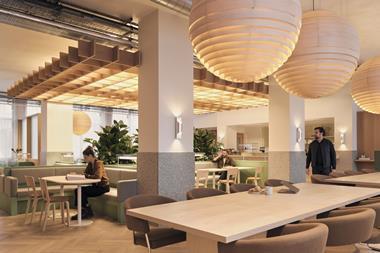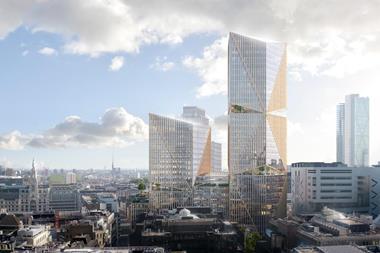The strong desire by the UK workforce to spend at least part of the working week at home is set to force changes on commercial landlords and tenants alike.


Walker Morris’ June 2021 Future World of Work research found that 75% of UK employees want to be in the office three days or less a week. Only 10% plumped for four to five days.
In the same month, the Law Society’s Property Section reported that, over the last year, the Chester Business Improvement District has seen 76% of new business occupiers being independently owned and 78% of closures coming from national chains or global brands.
Covid-19 has prompted unprecedented change in the way people live, work, shop and socialise. In turn, it is likely to revolutionise commercial real estate options, particularly in the office, retail and hospitality sectors.
What are the options?
In the majority of existing commercial leases, traditional options of exercising breaks and/or assigning/sub-letting premises remain available. However, they are always constrained – both by the terms of the lease and the buoyancy (or otherwise) of the market.
So, are there more flexible options?
In terms of office occupation, ‘flexible’ or ‘serviced’ office arrangements are rented workspaces that are fully serviced and maintained by an operator. They can vary in size from a single desk to an entire floor, depending on the occupant’s needs, which may change over time. The results of a survey carried out by Knight Frank in 2020 found that, post-Covid, 47% of UK businesses envision foresee incorporating flexible office space into their portfolios.
Serviced office agreements can be made, and occupation can commence, quickly and easily. However, the model can be problematic. For example, the informal sharing of office space between different businesses can lead to a legal minefield, often resulting in parties having less security than they require or being more tightly bound to property commitments than they had intended. It can also raise issues with client confidentiality, security of data, software, physical files and even the safety and security of staff.
In terms of retail and hospitality, creativity and collaboration will be required when it comes to occupation arrangements for high streets to survive and thrive. Changing customer behaviour and a trend towards more local, independent, socially-responsible consumerism mean that gaps created by large scale retail and hospitality departures are likely to be filled by small, non-chain businesses. Traditional long-term commercial leasing is unlikely to be feasible or favourable for them.
Alongside shorter lease terms, more frequent break options, pandemic clauses and flexibility in rent payments, the high street is already starting to benefit from an increase in turnover rents, wider permitted user provisions and a more cooperative, symbiotic approach to commercial property occupation.
The key takeaway is that traditional models may no longer prevail. Many tenants are already facing financial difficulties following the pandemic. Equally, many landlords are facing rental income deficits that may never be made up.
Once measures such as furlough and the moratorium on commercial lease forfeiture come to an end, there is likely to be another spate of tenant insolvencies and void premises. So, in any future lease negotiations, potentially everything is up for grabs. It is anticipated that, across office, retail and hospitality markets, the most successful arrangements will be dynamic, innovative and, above all, flexible for both parties.
Mark Byrne is a partner in the Real Estate team and David Manda is a director in the Real Estate Litigation Team, Walker Morris






























No comments yet